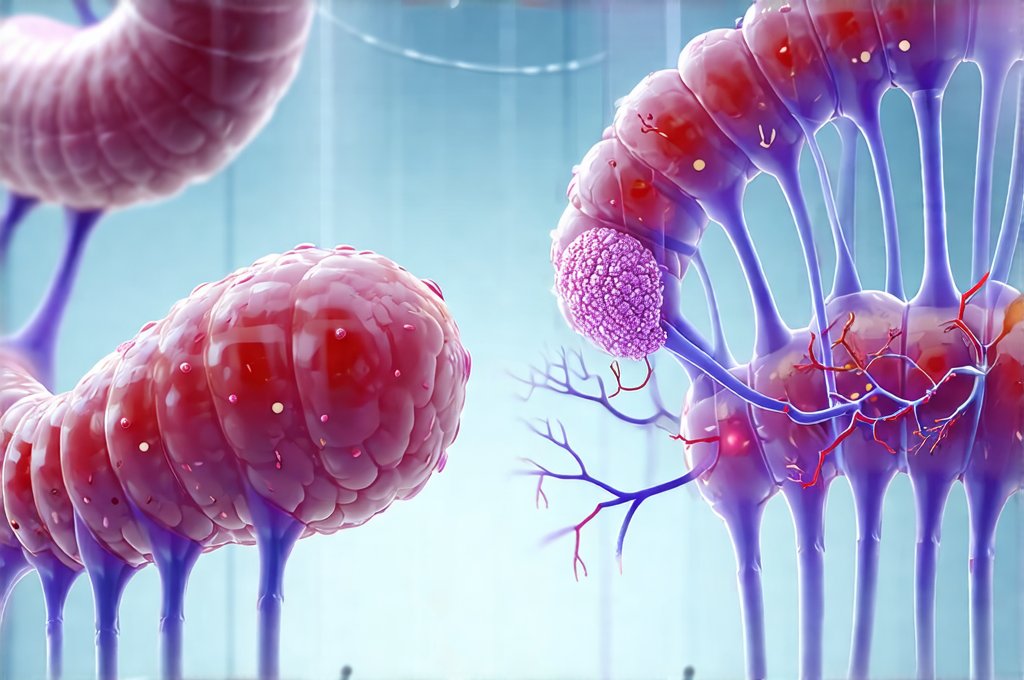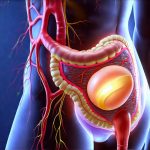The intricate relationship between our gut and brain is increasingly recognized as fundamental to overall health and wellbeing. For decades, research focused primarily on direct neural connections – the ‘gut-brain axis’ – but we now understand that chemical signaling plays an equally, if not more significant, role. This communication isn’t a one-way street; it’s a dynamic interplay orchestrated by a complex network of hormones released from the gut in response to nutrient intake and microbial activity. These gut hormones don’t just regulate digestion; they profoundly influence brain function, impacting appetite, mood, cognition, and even behavior. Understanding how these hormonal signals operate is crucial for appreciating the holistic connection between what we eat, our gut microbiome, and our mental state.
The traditional view of gastrointestinal hormones focused on their role in digestive processes – stimulating gastric emptying, regulating pancreatic secretion, or controlling gallbladder contraction. However, it’s now clear that these hormones also act as potent signaling molecules capable of crossing the blood-brain barrier or influencing vagal nerve activity to exert effects on central nervous system function. This bidirectional communication is not merely a fascinating scientific curiosity; it has significant implications for understanding and addressing conditions ranging from obesity and diabetes to anxiety, depression, and neurodegenerative diseases. The emerging field of ‘gut hormone signaling’ represents a paradigm shift in how we view the gut’s role beyond simple nutrient absorption – it’s an active endocrine organ profoundly influencing brain health. Considering food sensitivities can also be beneficial to understand these connections.
Gut Hormones as Key Modulators of Gas Signaling
The term “gas signaling” refers to the production and effects of gases within the gastrointestinal tract, notably hydrogen, methane, and carbon dioxide, generated primarily through microbial fermentation of undigested carbohydrates. While often perceived negatively (bloating, flatulence), these gases are not simply waste products; they play a critical role in gut physiology and can actively signal to the enteric nervous system and even more distant sites like the brain. Gut hormones significantly modulate this gas production and its subsequent signaling effects, creating a complex feedback loop. For example, hormones like glucagon-like peptide-1 (GLP-1) and peptide YY (PYY), released in response to nutrient ingestion, can alter gut motility – impacting how long food remains in the colon and thus, the amount of fermentation occurring.
The microbial composition of the gut heavily influences gas production. Different bacterial species produce varying amounts and types of gases. Gut hormones don’t directly affect the microbiome composition, but they indirectly shape it by altering the environment within the gut – nutrient availability, pH, motility – all factors that influence which microbes thrive. This creates a fascinating interplay: diet affects both hormone release and microbial composition, leading to gas production, which then signals back to alter gut function and potentially even hormonal responses. Furthermore, visceral sensitivity, or how acutely we perceive sensations from the gut, is also affected by hormones and can amplify or dampen our perception of gas-related symptoms. It’s important to consider dairy sensitivities as well, given their potential impact on digestion.
Importantly, the interaction isn’t limited to simply altering gas production; some gut hormones have been shown to directly interact with receptors present on enteroendocrine cells that are themselves sensitive to gases. This suggests a sophisticated regulatory mechanism where hormonal signals and gaseous metabolites work in concert to maintain gut homeostasis and influence brain function. For instance, increased hydrogen sulfide (H2S) production by certain bacteria has been linked to altered intestinal permeability and potential neuroinflammation, processes which can be modulated by hormonal signaling pathways. Understanding cancer’s impact on digestive function is also relevant when considering overall gut health.
The Role of GLP-1 and PYY
GLP-1 and PYY are two of the most extensively studied gut hormones with significant impacts on both metabolic control and brain function. Released from L-cells in the distal small intestine and colon in response to nutrient ingestion, they play key roles in appetite regulation and glucose homeostasis. However, their influence extends far beyond these functions. GLP-1, for example, has been shown to cross the blood-brain barrier and directly modulate neuronal activity in brain regions involved in reward processing and cognitive function. This suggests a potential mechanism by which diet and gut hormone release can impact mood and behavior.
- GLP-1 promotes insulin secretion, lowers glucagon levels, and slows gastric emptying – all contributing to improved glucose control.
- PYY suppresses appetite by acting on receptors in the hypothalamus, reducing food intake and promoting satiety.
- Both hormones exhibit neuroprotective effects in animal models, potentially mitigating cognitive decline and neuroinflammation.
The link between GLP-1/PYY and gas signaling is less direct but present. By modulating gut motility and fermentation rates, these hormones indirectly influence the amount of gas produced. Furthermore, changes in gut microbiome composition induced by diet can affect GLP-1/PYY secretion, creating a feedback loop that influences both digestion and brain function. Recent research suggests that certain microbial metabolites – short chain fatty acids (SCFAs) produced during fermentation – can actually enhance GLP-1 release, highlighting the interconnectedness of these systems. A diverse diet diversity is crucial for supporting this process.
Microbial Metabolites and Neuromodulation
The gut microbiome doesn’t just produce gases; it generates a vast array of metabolites, including SCFAs like acetate, propionate, and butyrate, as well as tryptophan metabolites and bile acid derivatives. These compounds have profound effects on host physiology, including brain function. SCFAs, for example, are absorbed into the bloodstream and can directly influence gene expression in neurons, alter blood-brain barrier permeability, and modulate immune responses within the brain. Tryptophan metabolites, produced from dietary tryptophan by gut bacteria, act as precursors to serotonin – a key neurotransmitter involved in mood regulation.
The production of these metabolites is highly dependent on diet and microbial composition, both of which are influenced by gut hormone signaling. Hormones like GLP-1 can indirectly promote the growth of beneficial SCFA-producing bacteria, while changes in gut motility induced by hormones affect fermentation rates and metabolite production. This creates a complex feedback loop where diet, hormones, microbiome, and metabolites all interact to influence brain health. Dysbiosis – an imbalance in the gut microbiome – can lead to altered metabolite profiles and contribute to neurological disorders.
- SCFAs have been shown to improve cognitive function and reduce anxiety in animal models.
- Tryptophan metabolites are essential for serotonin production, impacting mood and sleep.
- Bile acid derivatives regulate inflammation and modulate brain activity.
The interplay between gut hormones and microbial metabolites represents a promising area of research for developing novel therapeutic strategies targeting the gut-brain axis. Gluten sensitivity can significantly impact the microbiome and metabolite production.
Gut Permeability and Systemic Inflammation
Increased intestinal permeability – often referred to as ‘leaky gut’ – allows bacteria and their byproducts, including lipopolysaccharide (LPS), to enter the bloodstream, triggering systemic inflammation. This chronic low-grade inflammation has been implicated in a wide range of neurological disorders, including depression, anxiety, and neurodegenerative diseases. Gut hormones play a crucial role in maintaining intestinal barrier integrity and modulating inflammatory responses. GLP-1, for example, has been shown to strengthen tight junctions between intestinal cells – reducing permeability and preventing the translocation of bacterial products into circulation.
Furthermore, gut hormone signaling can directly influence immune cell function within the gut. PYY, for instance, modulates macrophage activity, suppressing pro-inflammatory cytokine production and promoting immune homeostasis. Gas production itself can contribute to increased intestinal permeability; certain gases like hydrogen sulfide (H2S) have been shown to disrupt tight junctions and promote inflammation.
- A healthy gut barrier is essential for preventing systemic inflammation and maintaining brain health.
- Gut hormones regulate intestinal permeability and modulate immune responses.
- Microbial metabolites, such as SCFAs, can strengthen the gut barrier and reduce inflammation.
The connection between gut hormones, gas signaling, gut permeability, and systemic inflammation highlights the interconnectedness of these systems and underscores the importance of a healthy gut microbiome for overall health and wellbeing. Targeting gut hormone pathways or modulating microbial composition may offer novel therapeutic strategies for preventing and treating neurological disorders associated with chronic inflammation. The effects of fast food on gut health can exacerbate these issues.
In conclusion, the impact of gut hormones on gas signaling is far more intricate than previously understood. It’s not simply about managing unpleasant symptoms like bloating; it’s about recognizing that these gases are active signaling molecules influenced by hormonal regulation and microbial activity, ultimately impacting brain function and overall health. Further research into this dynamic interplay will undoubtedly reveal new insights into the gut-brain axis and pave the way for innovative therapeutic interventions targeting both digestive and neurological conditions. Understanding digestive pressure can also contribute to a healthier gut environment.


















